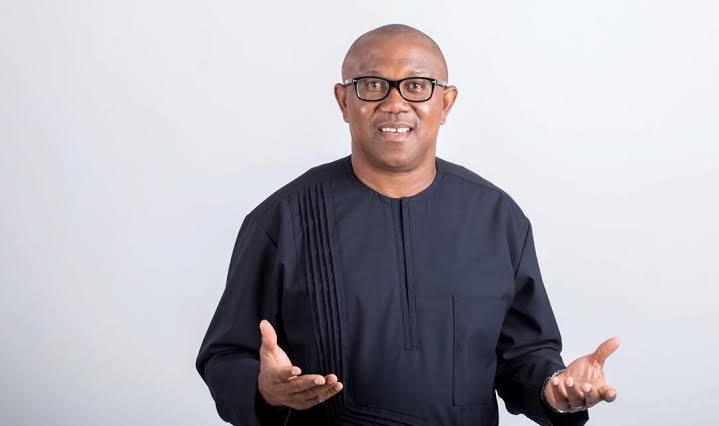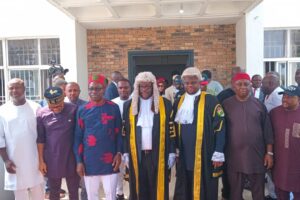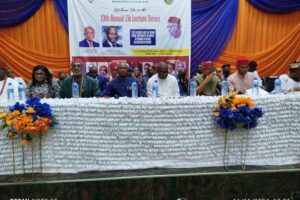Debt And Waste As Economic Policy – Peter Obi
Barely 26 days to the end of its eight-year tenure, the Buhari administration got the Senate to approve a N22.7 trillion Ways and Means borrowing from the CBN.
In seven years, CBN lending to the Buhari government had climbed 2700% in flagrant violation of the CBN Act.
Indifferent to the illegality of the excessive ways and means borrowing, the National Assembly still approved the new Tinubu administration’s request for an N7.3 trn securitization of the existing ways and means facility just before considering the 2024 budget proposals.
On the 30th of December 2023, the last working day of the year 2023, shockingly the President requested the National Assembly to approve the securitization of N7.3 trillion being the outstanding debt owed to the Central Bank of Nigeria (CBN) by the Federal Government of Nigeria. Almost at the same time as the illegal securitization was approved by parliament, the president also sought and secured National Assembly approval to borrow another $7.8 bn and €100m. No questions asked. No explanations were sought as to the precise purpose of these borrowings all within the seven-month tenure of this government.
Ordinarily, minimum public accountability should require that the president and his administration offer more specific explanations about the purpose of these borrowings. But so far, all we have been told is that these borrowings are meant to fund ‘capital’ expenditure.
Specifically, the continuous securitization of Ways and Means borrowing from the CBN is against the law and against the CBN act which stipulates the limit of the Federal Government’s borrowing from the CBN not to exceed 5% of the previous year’s revenue. The law also requires the liquidation of the outstanding borrowing before any new advancement can be made.
More importantly, the CBN Act expressly states that all borrowings under the Ways and Means cannot be converted to debt or securitized if the CBN is the underwriter. It needs to be pointed out that the idea of securitization of illegal borrowings from the CBN and transferring the same into our debt stock portends danger to the future of our economy. It increases the debt burden of the nation. It is even more worrisome because these accumulations of debts are not being transparently and productively utilized or accounted for. While this new debt of N7.3 trillion has been hurriedly approved without scrutiny by the National Assembly, the immediate public accountability question is: can the Federal Government, which holds the trust of the people, tell us what they used N7.3 trillion to do?
We have always been told that all borrowings are for ‘capital’ projects, can we know the capital or productive projects this huge borrowing is being applied to? What is emerging is a disturbing pattern of huge borrowing and profligate spending on nonessential procurements which are being termed ‘capital’ expenditure and are being funded with an accumulation of debts.
For instance, a good number of these so-called ‘capital’ expenditure items as contained in the 2024 budget are more procurement and luxury projects. This trend of lavish spending backed only by equally lavish borrowing is unsustainable and would wreck the economy in due course.
It needs to be halted. Unless this trend is halted, the nation runs the greater risk of running into more turbulent economic waters in the near future. This is to add my concerned voice to those of many other troubled Nigerians.
This is the time when we need to go beyond politics and partisan grandstanding to address the fundamental issues of rational economic management. I am afraid that the current administration is not paying sufficient attention to issues of rational economic management.
Instead, an unsustainable level of debt is being piled upon the economy thereby further burdening our already distressed populace who are bearing the burden of harsh economic policies not backed by compassionate cushioning policies. -PO












Add Comment